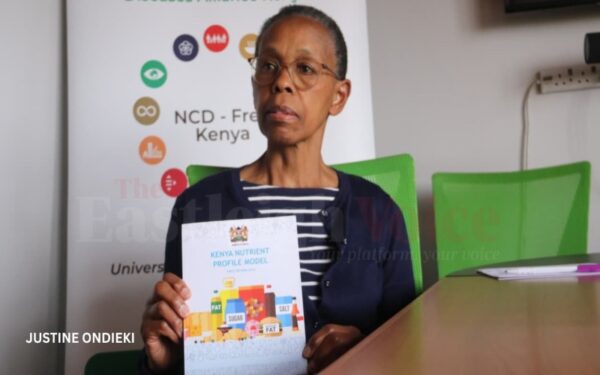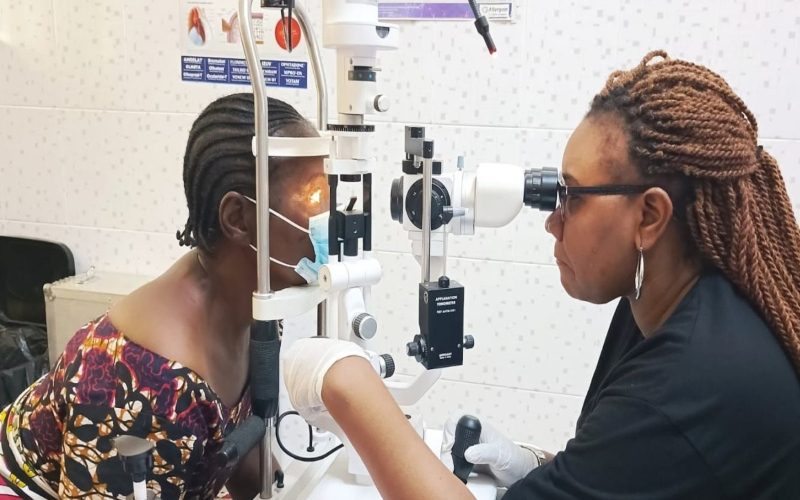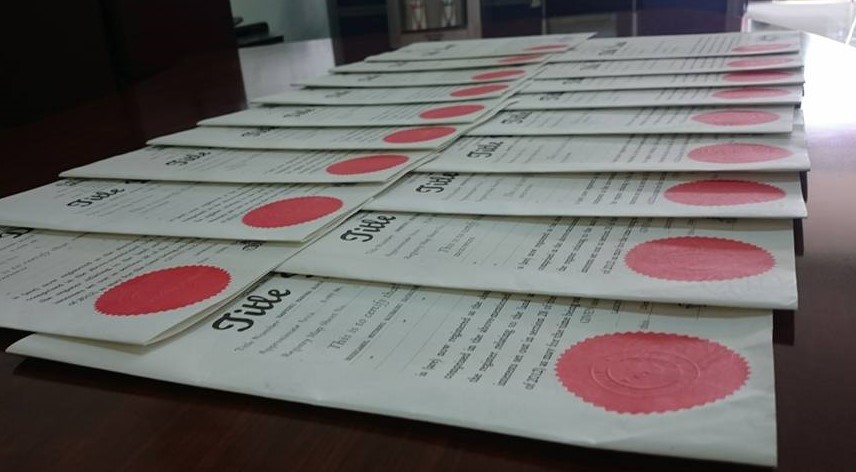From grief to action: How widow is changing Kenya’s battle against NCDs
As Kenya prepares to roll out front-of-pack labelling within the next year, stories like Esther Apondi’s remind us that behind every statistic is a family, a struggle, and a chance to do better.
When Esther Apondi lost her husband five years ago, she didn’t just lose a partner; she was swept into a storm of grief, stigma, and confusion.
His death came suddenly, just days after visiting Kenyatta National Referral Hospital with symptoms like night sweats, frequent urination, and a stubborn wound on his leg.
More To Read
- MPs demand SHA clears Sh10 billion in pending NHIF bills within three months
- Turkana marks World AIDS Day with stark warning over rising HIV infections
- SHA transition sparks tension as teachers cite lack of consultation, legal violations
- Review meeting highlights barriers to immunisation, maternal health in Turkana
- Court of Appeal postpones hearing on constitutionality of Health Acts
- How Riruta’s upgrade to Level IV hospital is transforming healthcare across Dagoreti
“I found the hospital documents later, after we had buried him. I didn’t even know he had diabetes. No one did,” said Apondi. “Looking back, I think he knew all along. He would insist on cassava, millet, ugali, and traditional vegetables. I never asked why; he was a man of few words anyway.”
The aftermath was heartbreaking. Apondi was accused of witchcraft and blamed for his death.
“During the burial, I was denied access to his documents. If it weren’t for my son demanding the burial permit and his national ID before they lowered him into the grave, I would have never seen them,” she recalled.
The accusations followed her back to Kibra, Nairobi, and when the weight became too heavy, she turned to alcohol to cope. Today, Apondi is sober and leads a support group for widows of non-communicable diseases (NCDs).
“We meet weekly to debrief and encourage each other. It’s easier to walk this journey with someone who understands what you're going through,” she said.
 Diabetes is one of the four major types of noncommunicable diseases. (Photo: Freepik)
Diabetes is one of the four major types of noncommunicable diseases. (Photo: Freepik)
Her story highlights how misunderstood NCDs remain in many communities and the urgent need for public awareness and policy reform in Kenya.
Data from the Ministry of Health (MoH) released in 2017 speak volumes: NCDs like diabetes, hypertension, obesity, and heart disease account for 43 per cent of all deaths in Kenya and over half of hospital admissions.
The strain on the health system is heavy and growing, driven largely by rising unhealthy diets, particularly ultra-processed foods high in sugar, salt, and unhealthy fats.
This is where Front-of-Pack Warning Labels (FOPWL) come in. These simple but powerful labels help consumers make healthier choices and form a central part of Kenya’s strategy to combat NCDs, supported by solid global evidence.
According to the International Institute for Legislative Affairs (IILA), countries such as Chile, Mexico, and Uruguay have seen remarkable progress after adopting FOPWL.
In Chile, sugary drink purchases dropped by 24 per cent in the first year, and packaged foods showed significant reductions in sodium, sugar, and saturated fat. Mothers from low- and middle-income households became more cautious, often urged by their children not to buy labelled products.
In Mexico, 64 per cent of Mexican Americans reported noticing these labels in Mexican-oriented US stores and buying fewer unhealthy products. Uruguay saw nearly half of the parents surveyed reporting healthier purchasing behaviours two years after implementation.
Kenya is preparing to follow suit. MoH has developed the Kenya Nutrient Profile Model (KNPM), which sets thresholds for nutrients of concern and guides policies such as mandatory front-of-pack labelling, marketing restrictions on unhealthy foods to children, sugary drink taxes, and regulation of food environments in schools and public institutions.
Dr Catherine Karekezi, Executive Director of the Non-Communicable Disease Alliance - Kenya, termed the KNPM a 'game changer'. “It empowers consumers to make informed choices and holds the food industry accountable,” said Karekezi.
 Executive Director of the Non-Communicable Disease Alliance - Kenya, Dr Catherine Karekezi. (Photo: Justine Ondieki)
Executive Director of the Non-Communicable Disease Alliance - Kenya, Dr Catherine Karekezi. (Photo: Justine Ondieki)
Beyond health, this initiative is about rights. Article 46 of Kenya’s Constitution guarantees consumers access to quality goods and the information needed to make informed decisions. It also protects their health and safety. The Food, Drugs, and Chemical Substances Act and the Consumer Protection Act provide the legal framework for mandatory nutrition labelling.
FOPWL aligns with Kenya’s commitment to Universal Health Coverage (UHC), which includes NCD prevention and care, and supports global goals like Sustainable Development Goal 3 (Good Health and Well-Being) and Goal 12 (Responsible Consumption and Production).
Kenya’s national policies reinforce this work. The Kenya Health Policy 2012–2030 aims to halt and reverse the rise of NCDs. The National Guidelines for Healthy Diets and Physical Activity (2017) call for standards promoting healthy eating, and the National School Meals and Nutrition Strategy (2017–2022) promotes nutritious school diets, where FOPWL can help establish healthier food environments.
What makes these labels especially effective is their simplicity. The Black Octagon Warning Label, with its bold black-and-white design and clear text, is the most effective format for Kenyan consumers. It is easy to understand, even for those with low literacy, ensuring accessibility.
Apondi fully supports the initiative. “In our communities, when something isn’t understood, it’s blamed on witchcraft. That’s why clarity and truth are needed,” she said.
Her views were echoed by Karekezi. “We’re not here to tell Kenyans what not to eat. Our aim is to ensure they understand what they are putting into their mouths. Most people currently only check expiry dates - that’s it,” she said.
Top Stories Today










































